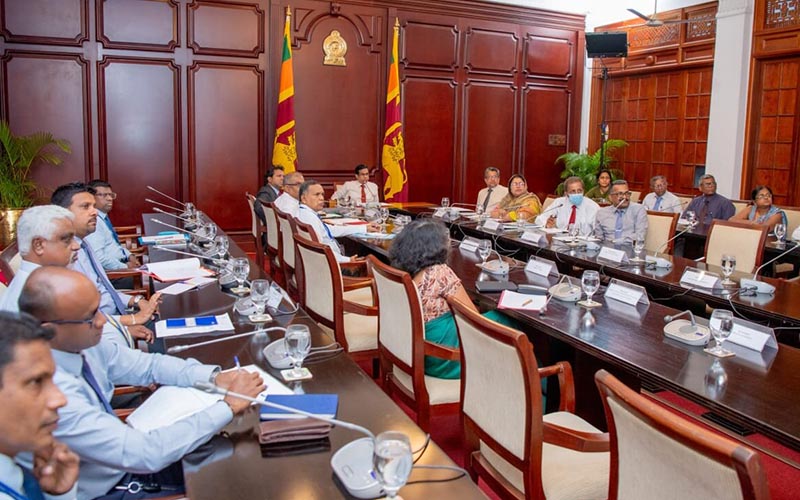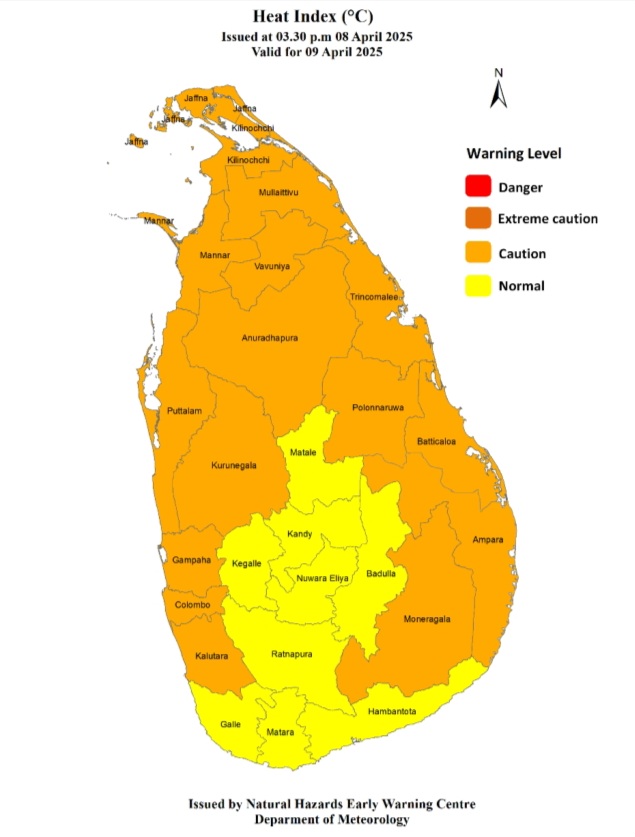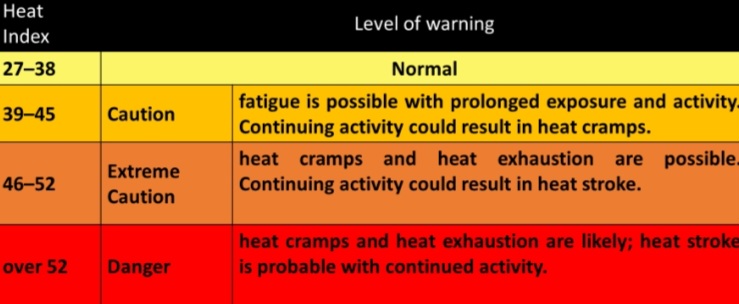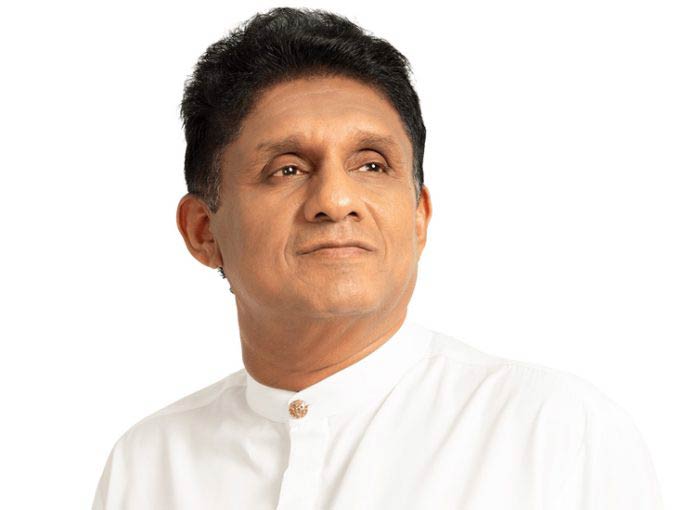News
US cautions China-backed Port City could turn into money-laundering haven

(ANI) US Ambassador to Sri Lanka and Maldives, Alaina Teplitz on Saturday warned Sri Lanka of unintended consequences of ‘nefarious actors’ who may try to misuse a China-backed Colombo Port City’s easy business rules as a permissive money laundering haven amid concerns of tax leaks.
Sri Lanka has unveiled draft legislation for a Colombo Port City Commission which allows for sweeping tax breaks, tax-free salaries and to be an offshore financial centre.
“Any legislation relating to the port city has to be considered very carefully for its economic impact,” Teplitz told reporters in Colombo in an online discussion.
“And of course among those un-intended consequences could be creating a haven for money launderers and other sorts of nefarious actors to take advantage of what was perceived as a permissive business environment for activities that would actually be illegal.”
The agency running the Port City would have extensive powers to exempt businesses from taxes of up to 40 years, though it is not a tax haven in the traditional sense.
Sri Lanka’s tax revenues have plunged in 2020, raising concerns over debt and the fiscal path, credit downgrades and the ability of the government to provide vital public services to the people, while managing loss-making state enterprises.
“I do recognize that the government of Sri Lanka wants to take advantage of the investment that has already been made in creating the Port City foundation, but the legislation really needs to be reflected to address these challenges and to be careful of what it might be to open doors to bad practice and unfair competition for the rest of the country,” said Teplitz.
Teplitz said an idea by US Treasury Secretary Janet Yellen to have a global single corporate tax was just a proposal with no immediate impact but Sri Lanka should think about tax concessions in its own interests.
Sri Lanka is under the worst import controls since the 1970s using the 1969 law, though exchange controls are less draconian.
Sri Lanka’s economy was progressively closed with an import control law being enacted in 1969 as money printing pressured the rupee, which worsened after the break-up of the Bretton Woods in 1971, as then-Federal Reserve Chief Arthur Burns printed money to target an output gap, forcing dollar to be floated.
Sri Lanka’s attempts at creating numbered accounts as part of creating Non-resident foreign currency accounts, after re-opening the economy in 1978 was also resisted by Western nations.
Citizens are also allowed to hold up to 15,000 US dollars as well as unlimited amounts in dollar accounts outside to protect their savings from monetary expropriation, in relaxation of legal tender laws.
News
Colombo Metropolitan Region, Eastern Development Plan and the Greater Hambantota Project discussed in detail

A meeting between Secretary to the President, Dr. Nandika Sanath Kumanayake and relevant ministry officials was held on Tuesday (08) at the Presidential Secretariat regarding the development plans to be implemented in Sri Lanka under three zones, in collaboration with the Surbana Jurong Institute of Singapore and 18 Ministries.
During the meeting it was discussed in detail regarding the plans for the Colombo Metropolitan Region, Eastern Development Plan and the Greater Hambantota Project. The officials from Singapore-based urban planning and infrastructure consultancy Surbana Jurong also joined the discussion virtually.
Progress reports on the three projects were reviewed in detail and Dr. Kumanayake instructed the officials to identify any deficiencies and finalize the necessary actions within the next two weeks.
The discussion also addressed delays in securing necessary approvals for investments under the existing regulatory framework, as well as the urgent need to revise certain legislative instruments to better facilitate national development.
The meeting was attended by Secretary to the Prime Minister G.P. Saputhanthri, Senior Additional Secretary to the President Russel Aponsu, Secretary to the Ministry of Urban Development, Construction and Housing U.G. Ranjith Ariyaratne, and several senior officials from the respective ministries.
News
Heat index at ‘Caution level’ in Northern, North-central, Eastern, North-western, Western provinces and Monaragala district today [09]

The Natural Hazards Early Warning Centre of the Department of Meteorology has issued a Warm Weather Advisory for 09 April 2025
The public are warned that the Heat index, the temperature felt on human body is likely to increase up to ‘Caution level’ at some places in Northern, North-central, Eastern, North-western, and Western provinces and in Monaragala district.
The Heat Index Forecast is calculated by using relative humidity and maximum temperature and this is the condition that is felt on your body. This is not the forecast of maximum temperature. It is generated by the Department of Meteorology for the next day period and prepared by using global numerical weather prediction model data.
Effect of the heat index on human body is mentioned below is prepared on the advice of the Ministry of Health and Indigenous Medical Services.

ACTION REQUIRED
Job sites: Stay hydrated and takes breaks in the shade as often as possible.
Indoors: Check up on the elderly and the sick.
Vehicles: Never leave children unattended.
Outdoors: Limit strenuous outdoor activities, find shade and stay hydrated. Dress: Wear lightweight and white or light-colored clothing.
Note:
In addition, please refer to advisories issued by the Disaster Preparedness & Response Division, Ministry of Health in this regard as well. For further clarifications please contact 011-7446491.
News
Sajith asks govt. to submit its MoUs with India to Parliament

Prof. Jayasumana raises possibility of Lanka ending up with “Quad’
Opposition and SJB Leader Sajith Premadasa has said it is the responsibility of the NPP government to submit the MoUs/agreements that were recently signed with India to the respective Sectoral Oversight Committees (SOCs).
Premadasa said so when The Island raised the issue with him. He said that during his meeting with Premier Modi his focus had been on opening the Indian market for Sri Lankan garment exports.
The seven MoUs/agreements signed on 05 April included defence cooperation, energy, Eastern Province development and digitalisation.
Meanwhile, the Vice President of Sarvajana Balaya and former lawmaker Prof. Channa Jayasumana said that the government owed an explanation whether the recently signed MoU on defence cooperation directly or indirectly attached Sri Lanka to the Quad security alliance, consisting of the US, Australia, Japan and India.
 The former SLPPer raised the issue at a meeting held at Boralesgamuwa on Monday (07) in support of Sarvajana Balaya candidates contesting the May 6 LG polls.
The former SLPPer raised the issue at a meeting held at Boralesgamuwa on Monday (07) in support of Sarvajana Balaya candidates contesting the May 6 LG polls.
Prof. Jayasumana urged that the MoU on Defence Cooperation be placed before Parliament, and the people, without further delay. The academic who served as State Health Minister during President Gotabaya Rajapaksa’s tenure said that President Anura Kumara Dissanayake’s foreign policy direction should be dealt with.
By Shamindra Ferdinando
-

 Business3 days ago
Business3 days agoColombo Coffee wins coveted management awards
-

 Business5 days ago
Business5 days agoDaraz Sri Lanka ushers in the New Year with 4.4 Avurudu Wasi Pro Max – Sri Lanka’s biggest online Avurudu sale
-

 Features4 days ago
Features4 days agoStarlink in the Global South
-

 Business6 days ago
Business6 days agoStrengthening SDG integration into provincial planning and development process
-

 Business5 days ago
Business5 days agoNew SL Sovereign Bonds win foreign investor confidence
-

 Sports7 days ago
Sports7 days agoTo play or not to play is Richmond’s decision
-

 Features4 days ago
Features4 days agoModi’s Sri Lanka Sojourn
-

 Midweek Review16 hours ago
Midweek Review16 hours agoInequality is killing the Middle Class











